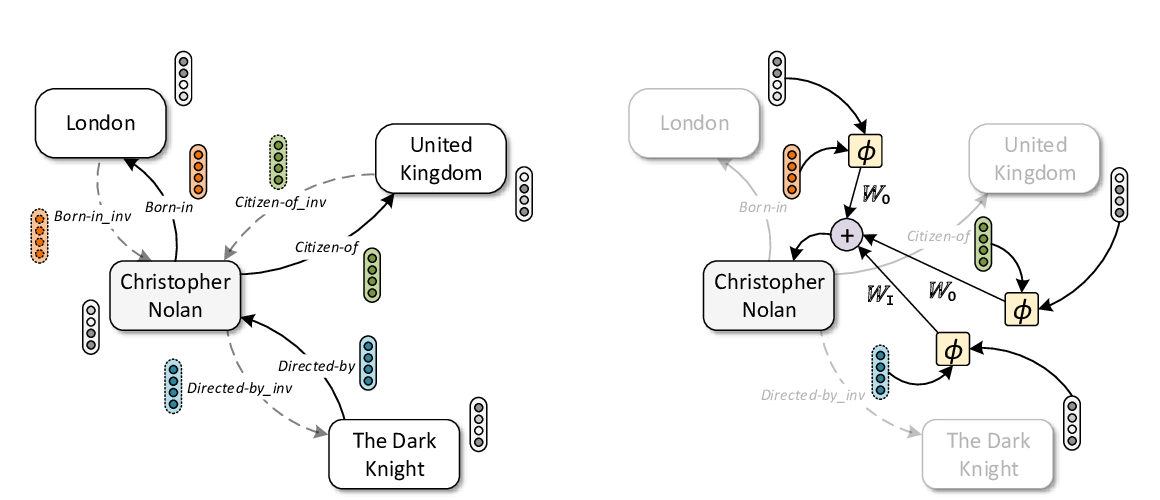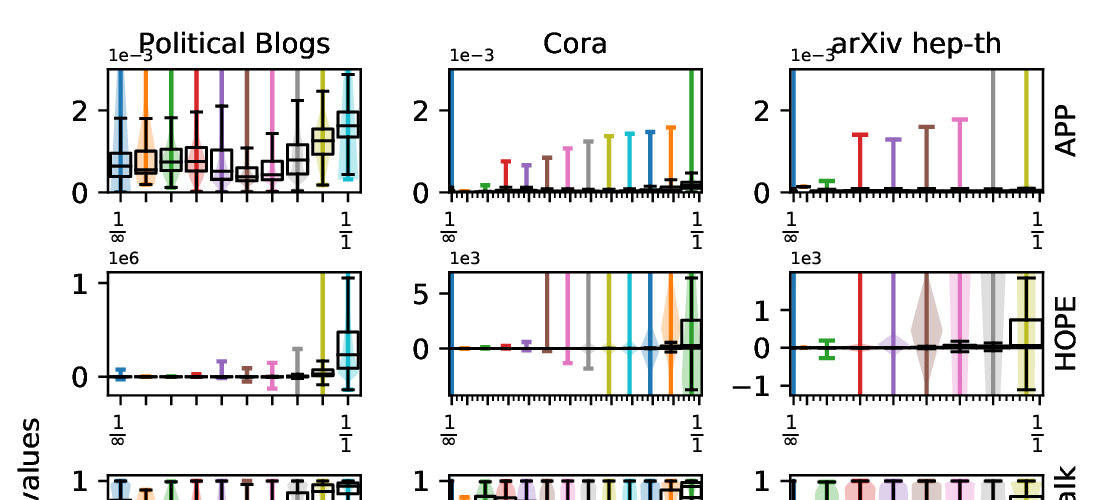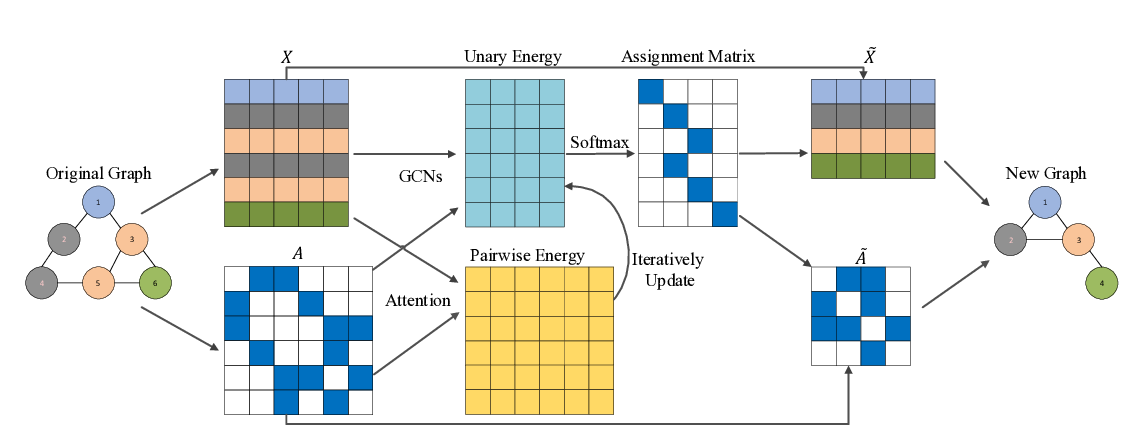Abstract:
Graph embedding techniques have been increasingly deployed in a multitude of different applications that involve learning on non-Euclidean data. However, existing graph embedding models either fail to incorporate node attribute information during training or suffer from node attribute noise, which compromises the accuracy. Moreover, very few of them scale to large graphs due to their high computational complexity and memory usage. In this paper we propose GraphZoom, a multi-level framework for improving both accuracy and scalability of unsupervised graph embedding algorithms. GraphZoom first performs graph fusion to generate a new graph that effectively encodes the topology of the original graph and the node attribute information. This fused graph is then repeatedly coarsened into much smaller graphs by merging nodes with high spectral similarities. GraphZoom allows any existing embedding methods to be applied to the coarsened graph, before it progressively refine the embeddings obtained at the coarsest level to increasingly finer graphs. We have evaluated our approach on a number of popular graph datasets for both transductive and inductive tasks. Our experiments show that GraphZoom can substantially increase the classification accuracy and significantly accelerate the entire graph embedding process by up to $40.8 \times$, when compared to the state-of-the-art unsupervised embedding methods.


